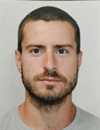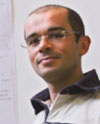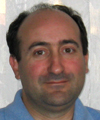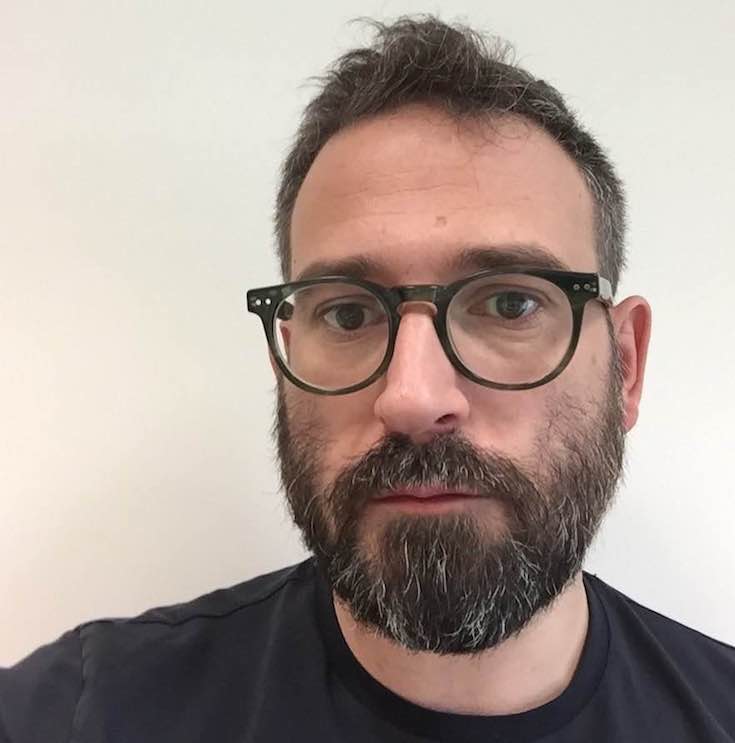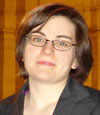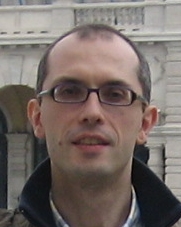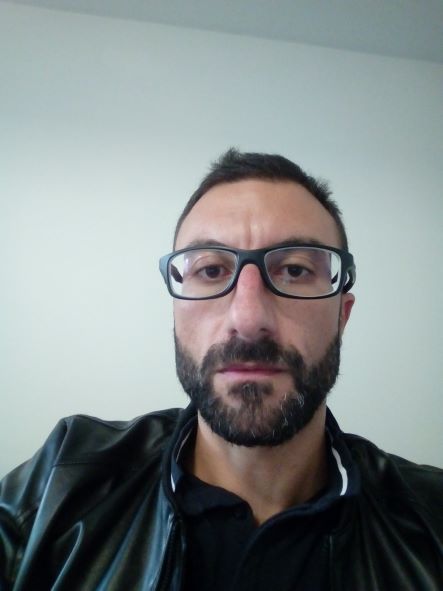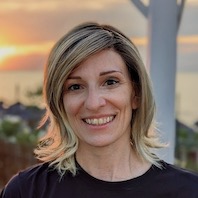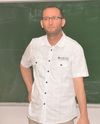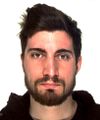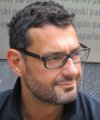Studying at the University of Verona
Here you can find information on the organisational aspects of the Programme, lecture timetables, learning activities and useful contact details for your time at the University, from enrolment to graduation.
Academic calendar
The academic calendar shows the deadlines and scheduled events that are relevant to students, teaching and technical-administrative staff of the University. Public holidays and University closures are also indicated. The academic year normally begins on 1 October each year and ends on 30 September of the following year.
Course calendar
The Academic Calendar sets out the degree programme lecture and exam timetables, as well as the relevant university closure dates..
| Period | From | To |
|---|---|---|
| Semester 1 | Oct 2, 2023 | Jan 26, 2024 |
| Semester 2 | Mar 4, 2024 | Jun 14, 2024 |
| Session | From | To |
|---|---|---|
| Winter exam session | Jan 29, 2024 | Mar 1, 2024 |
| Summer exam session | Jun 17, 2024 | Jul 31, 2024 |
| Autumn exam session | Sep 2, 2024 | Sep 30, 2024 |
| Session | From | To |
|---|---|---|
| Summer graduation session | Jul 23, 2024 | Jul 23, 2024 |
| Autumn graduation session | Oct 23, 2024 | Oct 23, 2024 |
| December graduation session | Dec 12, 2024 | Dec 12, 2024 |
| Winter graduation session | Mar 20, 2025 | Mar 20, 2025 |
| Period | From | To |
|---|---|---|
| Festa di Ognissanti | Nov 1, 2023 | Nov 1, 2023 |
| Festa dell'Immacolata | Dec 8, 2023 | Dec 8, 2023 |
| Vacanze di Natale | Dec 24, 2023 | Jan 7, 2024 |
| Festività pasquali | Mar 29, 2024 | Apr 1, 2024 |
| Ponte della Festa della Liberazione | Apr 25, 2024 | Apr 26, 2024 |
| Festa del Lavoro | May 1, 2024 | May 1, 2024 |
| Festività del Santo Patrono: San Zeno | May 21, 2024 | May 21, 2024 |
| Festa della Repubblica | Jun 2, 2024 | Jun 2, 2024 |
| Vacanze estive | Aug 12, 2024 | Aug 17, 2024 |
Exam calendar
Exam dates and rounds are managed by the relevant Science and Engineering Teaching and Student Services Unit.
To view all the exam sessions available, please use the Exam dashboard on ESSE3.
If you forgot your login details or have problems logging in, please contact the relevant IT HelpDesk, or check the login details recovery web page.
Should you have any doubts or questions, please check the Enrollment FAQs
Academic staff
 elena.antelmi@univr.it
elena.antelmi@univr.it
 anna.barbieri@univr.it
anna.barbieri@univr.it
 mauro.bonafini@univr.it
mauro.bonafini@univr.it
 maurizio.boscaini@univr.it
maurizio.boscaini@univr.it
 mila.dallapreda@univr.it
mila.dallapreda@univr.it
 michele.ginesi@univr.it
michele.ginesi@univr.it
 giovannigerardo.muscolo@univr.it
giovannigerardo.muscolo@univr.it
 giandomenico.nollo@unitn.it
giandomenico.nollo@unitn.it
 andrea.roberti@univr.it
andrea.roberti@univr.it
 luca.selmi@unimore.it
luca.selmi@unimore.it
 claudio.tomazzoli@univr.it
claudio.tomazzoli@univr.it
 federico.tramarin@univr.it
federico.tramarin@univr.it
 ihsen.yengui@univr.it
ihsen.yengui@univr.it
 franco.zivcovich@univr.it
franco.zivcovich@univr.it
 simone.zuccher@univr.it
simone.zuccher@univr.it
Study Plan
The Study Plan includes all modules, teaching and learning activities that each student will need to undertake during their time at the University.
Please select your Study Plan based on your enrollment year.
1° Year
| Modules | Credits | TAF | SSD |
|---|
2° Year It will be activated in the A.Y. 2024/2025
| Modules | Credits | TAF | SSD |
|---|
3° Year It will be activated in the A.Y. 2025/2026
| Modules | Credits | TAF | SSD |
|---|
1 module among the following| Modules | Credits | TAF | SSD |
|---|
| Modules | Credits | TAF | SSD |
|---|
| Modules | Credits | TAF | SSD |
|---|
1 module among the following| Modules | Credits | TAF | SSD |
|---|
Legend | Type of training activity (TTA)
TAF (Type of Educational Activity) All courses and activities are classified into different types of educational activities, indicated by a letter.
Mechanics and Thermodynamics (2023/2024)
Teaching code
4S009867
Teacher
Coordinator
Credits
6
Language
Italian
Scientific Disciplinary Sector (SSD)
FIS/01 - EXPERIMENTAL PHYSICS
Period
Semester 2 dal Mar 4, 2024 al Jun 14, 2024.
Courses Single
Authorized
Learning objectives
The course aims to provide students with an introduction to the experimental method and the basics of classical mechanics and thermodynamics. Upon completion of the course: students will be able to demonstrate knowledge and understanding of the laws of classical mechanics, and thermodynamics; students will be able to apply the acquired knowledge and understanding skills to solve problems of mechanics and thermodynamics; students will have the capability to apply the fundamental concepts of classical mechanics and thermodynamics to the resolution of practical problems that they will meet during forthcoming studies; students will develop the skills required to continue the studies in an autonomous way in those disciplines pertaining to the graduation in Computer Science that require the application and knowledge of the laws of Physics.
Prerequisites and basic notions
Basic knowledge of algebra, geometry, derivatives and integral calculus.
Program
Introduction to Vectors
Dimensional analysis, unit conversion, coordinate systems, review of trigonometry, vector and scalar quantities, dot product, vector addition, cross product: graphical method and analytical method.
Motion
Average velocity and instantaneous velocity, average acceleration, instantaneous acceleration, free fall, position-velocity-acceleration vectors, projectile motion, uniform circular motion, tangential and radial acceleration, relative velocity, and reference frames.
Laws of Motion and Newton's Laws
Concept of force, Newton's First Law, the concept of mass, Newton's Second Law and resultant force, gravitational force and weight, Newton's Third Law, static and dynamic friction, uniform circular motion, and Newton's Law, introduction to fundamental forces, conservative and dissipative forces.
Energy and Energy Transfer
Concept of work, work done by a constant force, work done by a variable force, kinetic energy, non-isolated systems, dynamic friction and work, potential energy, isolated systems, concept of conservative force, potential energy from gravitational force, work-energy theorem.
Momentum and Collisions
Momentum and its conservation, concept of impulse, elastic and inelastic collisions, collisions in two dimensions, center of mass, and motion of a system of particles.
Rotational Motion
Angular position, velocity, and acceleration. Rigid body, rigid body in constant rotation, rigid body in constant angular acceleration, rotational and translational quantities, concept of rotational kinetic energy, moment of a force, introduction to cross product, rigid body and resultant moment of forces, levers, definition of angular momentum, conservation of angular momentum, rolling of rigid bodies, rotational kinetic energy.
Gravity
Overview of Newton's Law of Universal Gravitation.
Oscillatory Motion
Mass-spring system, Hooke's law, simple harmonic motion, energy in harmonic motion, simple pendulum and introduction to compound pendulum, damped oscillations.
Fluid Mechanics
Pressure, pressure and depth, pressure measurement, Archimedes' principle, Pascal's law, ideal fluid, fluid dynamics and continuity equation, flow rate, Bernoulli's theorem, viscous fluid.
Thermodynamics
Definition of temperature, thermal expansion, definition of heat, specific heat, equation of state for ideal gases, introduction to statistical thermodynamics, thermodynamic transformations, entropy.
Bibliography
Didactic methods
Frontal lessons with examples and exercises on the topics covered.
Learning assessment procedures
Written tests, with exercises to be solved on the course program and similar to those that are done in class. Students will be allowed to use their textbooks, calculator, and notes during the exam.
Evaluation criteria
A score will be assigned to each proposed exercise. The sum of the scores of the exercises will be equivalent to the maximum grade (30/30)
Criteria for the composition of the final grade
The final grade will be the sum of the scores of the individual problems, for a total of 30/30. The highest distinction may be awarded after a comprehensive integration of the written examination.
Exam language
Italiano
Type D and Type F activities
Le attività formative di tipologia D sono a scelta dello studente, quelle di tipologia F sono ulteriori conoscenze utili all’inserimento nel mondo del lavoro (tirocini, competenze trasversali, project works, ecc.). In base al Regolamento Didattico del Corso, alcune attività possono essere scelte e inserite autonomamente a libretto, altre devono essere approvate da apposita commissione per verificarne la coerenza con il piano di studio. Le attività formative di tipologia D o F possono essere ricoperte dalle seguenti attività.
1. Insegnamenti impartiti presso l'Università di Verona
Comprendono gli insegnamenti sotto riportati e/o nel Catalogo degli insegnamenti (che può essere filtrato anche per lingua di erogazione tramite la Ricerca avanzata).
Modalità di inserimento a libretto: se l'insegnamento è compreso tra quelli sottoelencati, lo studente può inserirlo autonomamente durante il periodo in cui il piano di studi è aperto; in caso contrario, lo studente deve fare richiesta alla Segreteria, inviando a carriere.scienze@ateneo.univr.it il modulo nel periodo indicato.
A partire dagli immatricolati A.A. 2022/2023 sarà possibile inserire autonomamente a libretto gli esami residuali offerti sia nel 2° sia nel 3° anno.
Per i seguenti insegnamenti non è necessaria la richiesta alla Commissione Pratiche Studenti: Basi di dati e web (Laurea in Bioinformatica); Biologia generale (Laurea in Bioinformatica); Biologia molecolare (Laurea in Bioinformatica); Probabilita' e statistica (Laurea in Informatica); Programmazione e sicurezza delle reti (Laurea in Informatica).
2. Attestato o equipollenza linguistica CLA
Oltre a quelle richieste dal piano di studi, per gli immatricolati A.A. 2021/2022 e A.A. 2022/2023 vengono riconosciute:
- Lingua inglese: vengono riconosciuti 3 CFU per ogni livello di competenza superiore a quello richiesto dal corso di studio (se non già riconosciuto nel ciclo di studi precedente).
- Altre lingue e italiano per stranieri: vengono riconosciuti 3 CFU per ogni livello di competenza a partire da A2 (se non già riconosciuto nel ciclo di studi precedente).
Tali cfu saranno riconosciuti, fino ad un massimo di 3 cfu complessivi, di tipologia D. Solo nel caso in cui la data di acquisizione della certificazione sia precedente al 27/10/2023 (data della delibera del Collegio didattico di Ingegneria dell'Informazione) potranno essere riconosciuti un massimo di 6 CFU, come precedentemente previsto. Ulteriori crediti a scelta per conoscenze linguistiche potranno essere riconosciuti solo se coerenti con il progetto formativo dello studente e se adeguatamente motivati.
Per gli immatricolati A.A. 2023/2024 i crediti per certificazioni linguistiche ulteriori a quelle previste dal piano didattico vengono riconosciuti come crediti sovrannumerari taf D.
Modalità di inserimento a libretto: richiedere l’attestato o l'equipollenza al CLA e inviarlo alla Segreteria Studenti - Carriere per l’inserimento dell’esame in carriera, tramite mail: carriere.scienze@ateneo.univr.it
3. Competenze trasversali
Scopri i percorsi formativi promossi dal TALC - Teaching and learning center dell'Ateneo, destinati agli studenti regolarmente iscritti all'anno accademico di erogazione del corso https://talc.univr.it/it/competenze-trasversali
Modalità di inserimento a libretto: non è previsto l'inserimento dell'insegnamento nel piano di studi. Solo in seguito all'ottenimento dell'Open Badge verranno automaticamente convalidati i CFU a libretto. La registrazione dei CFU in carriera non è istantanea, ma ci saranno da attendere dei tempi tecnici.
4. CONTAMINATION LAB
Il Contamination Lab Verona (CLab Verona) è un percorso esperienziale con moduli dedicati all'innovazione e alla cultura d'impresa che offre la possibilità di lavorare in team con studenti e studentesse di tutti i corsi di studio per risolvere sfide lanciate da aziende ed enti. Il percorso permette di ricevere 6 CFU in ambito D o F. Scopri le sfide: https://www.univr.it/clabverona
ATTENZIONE: Per essere ammessi a sostenere una qualsiasi attività didattica, incluse quelle a scelta, è necessario essere iscritti all'anno di corso in cui essa viene offerta. Si raccomanda, pertanto, ai laureandi delle sessioni di dicembre e aprile di NON svolgere attività extracurriculari del nuovo anno accademico, cui loro non risultano iscritti, essendo tali sessioni di laurea con validità riferita all'anno accademico precedente. Quindi, per attività svolte in un anno accademico cui non si è iscritti, non si potrà dar luogo a riconoscimento di CFU.
5. Periodo di stage/tirocinio
Oltre ai CFU previsti dal piano di studi (verificare attentamente quanto indicato sul Regolamento Didattico): qui il VADEMECUM DELLE ATTIVITÀ DI TIROCINIO (indirizzo email della Commissione tirocini: tirocini-ismp@ateneo.univr.it ); qui la relativa pagina informativa (con link a moodle), qui informazioni su come attivarlo.
Verificare nel regolamento quali attività possono essere di tipologia D e quali di tipologia F.
Insegnamenti e altre attività che si possono inserire autonomamente a libretto
| years | Modules | TAF | Teacher |
|---|---|---|---|
| 2° 3° | Introduction to Docker | D |
Franco Fummi
(Coordinator)
|
| 2° 3° | Introduction to quantum mechanics for quantum computing | D |
Claudia Daffara
(Coordinator)
|
| 2° 3° | Introduction to smart contract programming for ethereum | D |
Sara Migliorini
(Coordinator)
|
| 2° 3° | Introduction to Robotics for students of scientific courses. | D |
Andrea Calanca
(Coordinator)
|
| 2° 3° | Web and mobile app design using react and react native | D |
Graziano Pravadelli
(Coordinator)
|
| 2° 3° | Rapid prototyping on Arduino | D |
Franco Fummi
(Coordinator)
|
| 2° 3° | Firmware development with bluetooth low energy (BLE) protocol and freertos operating system | D |
Franco Fummi
(Coordinator)
|
| years | Modules | TAF | Teacher |
|---|---|---|---|
| 2° 3° | Introduction to Robotics for students of scientific courses. | D |
Andrea Calanca
(Coordinator)
|
| 2° 3° | LaTeX Language | D |
Enrico Gregorio
(Coordinator)
|
| 2° 3° | HW components design on FPGA | D |
Franco Fummi
(Coordinator)
|
| 2° 3° | Protection of intangible assets (SW and invention)between industrial law and copyright | D |
Mila Dalla Preda
(Coordinator)
|
| years | Modules | TAF | Teacher |
|---|---|---|---|
| 1° | Subject requirements: mathematics | D |
Franco Zivcovich
(Coordinator)
|
Career prospects
Module/Programme news
News for students
There you will find information, resources and services useful during your time at the University (Student’s exam record, your study plan on ESSE3, Distance Learning courses, university email account, office forms, administrative procedures, etc.). You can log into MyUnivr with your GIA login details: only in this way will you be able to receive notification of all the notices from your teachers and your secretariat via email and soon also via the Univr app.
Attendance
The inter-university nature of the course of study lies in the cooperation of the three universities in the provision of faculty. Therefore, teaching delivery takes place at the administrative and teaching site in Verona and not in the partner universities. This means that it is not possible to attend this bachelor's degree program in the University of Trento or Modena-Reggio Emilia; however, it is possible to use the study spaces of the partner universities, thanks to the agreement between them.
As stated in the Didactic Regulations for A.Y. 2022/2023, course attendance is not mandatory.
Career management
Student login and resources
Erasmus+ and other experiences abroad
Graduation
List of theses and work experience proposals
| theses proposals | Research area |
|---|---|
| THESIS_1: Sensors and Actuators for Applications in Micro-Robotics and Robotic Surgery | Various topics |
| THESIS_2: Force Feedback and Haptics in the Da Vinci Robot: study, analysis, and future perspectives | Various topics |
| THESIS_3: Cable-Driven Systems in the Da Vinci Robotic Tools: study, analysis and optimization | Various topics |
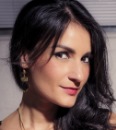
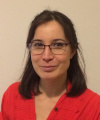

 0461 283551
0461 283551

